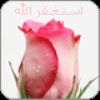|
ESL Forum:
Techniques and methods
in Language Teaching
Games, activities
and teaching ideas
Grammar and
Linguistics
Teaching material
Concerning
worksheets
Concerning
powerpoints
Concerning online
exercises
Make suggestions,
report errors
Ask for help
Message board
|
ESL forum >
Message board > School year in your country
School year in your country
|

manonski (f)

|
School year in your country
|
|
Hi
Happy Saturday to everyone.
I �m starting a new schoolyear with my students next Wednesday and I would like them to compare our own school life to other countries. I �m going to need your help here.
Could you give me a brief description of how it goes in your country for elementary students? Your help would be greatly appreciated.
- number of school days
- when the year starts and ends
- subjects studied
- hours (what time you start and end the day)
- other interesting info you want to add about your school life (for example, rituals, holidays that are celebrated...)
If you guys want to, I can then upload the info I �ve gathered on this site on a printable.
Thank you very much!  |
28 Aug 2010
|
|
|
|

missiky

|
|
hi manonski,
schools in Morocco start on September the 15th. students study from Monday to Saturday. so they only have one day off. the subjects taught in schools are Arabic, french, maths, english, history and geography, sports,physics, chemestry, arts, music, islamic education, and spanish ( students choose either spanish or english.)
Moroccan classes are usually hectic, i mean the number of students is 35 students per class or maybe more. as for the hours of school, it`s really complicated. students may go to school from 8 to 12 or from 2 to 6. sometimes they can go to school in the morning, have two hours break from 12 to 2 , and then resume classes to 6.
happy weekend!
|
28 Aug 2010
|
|
|

serene

|
Hi Manon,
I �ve just sent you a PM with some info about primary education in Greece. Hope you find it useful.
Please let me know if/when you upload a printable on this subject as I �ll be very interested.
Have a happy weekend, too!
|
28 Aug 2010
|
|
|

Izadeabreu

|
|
Hi Manon
School in Brazil starts in February and finishes in December - 200 days. They usually have classes from Monday to Friday, from 7:00 to 12:20 or in the afternoon from 1:00 to 6:00. It varies from school to school. Some schools have classes in the morning and afternoon. But as a general rule only part time. Subjects are compulsory. My son, who�s 16, a junior this year , studies Math, Portuguese, Literature, Philosophy, English, Spanish, PE, Sociology, Chemistry, Physics, Biology, Religion, History, Geography. The number of students in class: 35 to 40. They also have to wear uniforms.
Hope I have helped. If you need any more information... just ask!
Great weekend
Iza
|
28 Aug 2010
|
|
|

elderberrywine

|
In Germany, the school year begins somewhere between mid-July and end of August, depending on the region you live in. (I �m starting the day after tomorrow  ) )
We have 6,5 weeks � summer holidays, not much compared to other countries.
But the weather is so bad that we might as well spend August in school...
School is from Monday to Friday, with usually one or two afternoons.
Subjects are German, Math, English, French , Latin (not compulsory), later on Spanish or Russian in some schools (not compulsory) , Physics, Chemistry, Biology, Informatics (not compulsory), Geography, Politics, Music, Arts.
In most regions we have religion classes or ethics classes instead. Philosophy is also a non-compulsory subject. In some regions you can have educational science or psychology as subjects.
Not all these subjects are taught every year, on one year you might have biology and chemistry, then one year with physics only. In one year you might have music, the following year arts classes.
We start school between 7.30 and 8.00 and end shortly after 1 o �clock unless we have afternoon lessons.
When we have afternoon classes, teachers are not allowed to give homework for the following day. Our students make sure we never forget that rule!
Practically all students start with English as their first foreign language. Many take French as second language, but there are still quite a few who learn Latin instead. In many schools you can learn a third foreign language or else specialize on science or informatics.
Informatics seems to be a boys � subject whereas the more advanced the classes are, the more girls continue languages. In educational science you find few boys, in advanced physics classes few girls.
In my school we teach girls and boys physics separately as studies have shown that girls learn science subjects more easily when there are no boys around... but that �s not done in many schools, I think.
No school uniforms. Very little discipline in German schools - we don�t live up to the reputation we have at all!! Students from abroad who visit are often quite shocked.
|
28 Aug 2010
|
|
|

summerwinds

|
|
thank u manonski for the question that let me tell u sth about school life in Saudi Arabia
the new school year will start after a month, the school days are 5 days a week.
the weekend is on Thursday and Friday , the week starts on Saturday
we study 6-7 hours a day. in the 2nd week, schools celebrate the national day.
the school subjects in elementary are religion, science, maths, english, history, arabic, art and geography.but it depends on the grade
|
28 Aug 2010
|
|
|

manuelanunes3

|
|
hi
School in Portugal begins between 8th and 13th September.
Students have 15 days of holidays in December from 18th December to 2nd or 3rd January.
They also have 3 days free in February for Carnival.
Students have another 15 days of holidays at Easter time and then they have holidays around 20th June till September.
Teachers have the month of August for holidays and one week at Christmas time, one week at Easter time, and the same three days for Carnival.
Students have lots of subjects to study. For example in 7th grade they have: Portuguese, French or Spanish (they can choose) and English, Maths, Physics & Chemistry, History, Geography, Citizenship, Guided Study, Music, Project work, Physical Education, Art , Crafts, Sciences and Religious Education (optional).
5 days of school every week (from Monday to Friday)- School begins at 8.40 (depending on some schools it can vary) and ends at 4.25. They have four or five classes in a row in the morning, then one hour for lunch and then another 4 hour of classes in the afternoon.
This schedule is the same everyday except on Wednesdays, that �s when they have the afternoon off, except if the students have some difficulties and have to take extra classes of Portuguese, Maths or English.
There are lessons of 45 minutes each or 90 minutes each without any break. There is a big break of 20 or 30 minutes in the morning and another of 15 or 20 minutes break in the afternoon.
I think they have too many subjects and too much work to do everyday, that �s why we try to soften the amount of homework we send.
|
28 Aug 2010
|
|
|
|
|

AACG

|
|
Interesting topic manonski.Here in Argentina we start classes the first days of March and finish by mid December. We have a 15 days winter break, generally after 9th July (our national holiday) and summer holidays in January and February. A typical school day runs from 8 a.m to 1 p.m. or from 1:30 to 6:30 aprox.(you can choose between the morning or the afternoon shift, but the morning is the most popular and crowded). Students have no optional subjects, all of them are compulsory and they may vary within regions. However we may say that a regular timetable for an elementary school student would include: maths, language, history, geography, biology, PE, music, art and (only in private institutions) English and religious studies.
What about Canada? I �d like to know since I�m planning to move there. Do pm me if you make a worksheet on this topic.
I hope you find the information useful.
|
28 Aug 2010
|
|
|

mariby22

|
Schools Russia
School starts on the 1st of September, it is a big celebration, kids take a lot of flowers to school to give to their teachers. Usually parents come too.Usually all the kids, teaches, parents gather in the yard in front of the school, there are many encouragement speeches, music, rituals particular to this or that geographical region.
The school ends on the 31st of May, with another big school celebration, lots of flowers and happy parents. The school leavers ( kids graduate at the age of 16-17) throw balloons into the air and watch them being carried away by the air. They are supposed to make a wish before they let the balloon go. Some people call this ritual "say goodbye to childhood". The kids dance the "farewell school waltz", usually well-prepared and very beautiful
The most important subject in Russian schools is probably maths, then the Russian language and literature, of course, a foreign language, physics, geography, chemistry, biology, computer science,sociology, trade- separate for boys and girls, physical education,art studies, music - for kids grade 1-4. Kids cannot "opt-out" from a subject. Everybody studies subjects of both scientific and humanitarian cycle. Therefore, even if by you 15 years of age you understand you are a poet, and will probably become a journalist or something, they still have you study maths, physics, etc. on a very high level. So that you know, the maths studied in Russian high school is equivalent to 1 and sometimes 2nd years of American technical colleges and universities...
The school usually starts at 8, but schools are free to change that, so there are schools that start at 8:30, 8:45, even at 9. The length of one lesson is 45 minutes. The break can be from 5 to 20 minutes. The breaks when pupils go to the school canteen are longer (20 min). The minimum number of lessons per day is 4 ( for grades 1-4) and up to 8 lessons. There are optional classes that kids may take, but they are to broaden the knowledge they get during their every-day lessons, nothing extra.
Russian school is all about discipline, the authoritarian style has been around for centuries. This type of class management is very easy for teachers - you tell what to do and they do it. This is how Russians have achieved excellent results in science on international arena. There are, of course, problems with this approach. First of all -some kids cannot develop creativity and enough independence ( but I have to tell you, those really gifted, develop creativity and develop independence no matter what); secondly the "heat wave of american liberalism" is hitting our schools and children. They want more freedom and often do not want to take the pressure of the traditional style. Our teachers are not very much ready for the switch. Such switch is not even possible, because the Russian mentality would not be able to accept liberalism the way it is in Europe or the US. Rather, there is some middle way the teachers are struggling to find.
|
28 Aug 2010
|
|
|
|
1
2
Next >
|